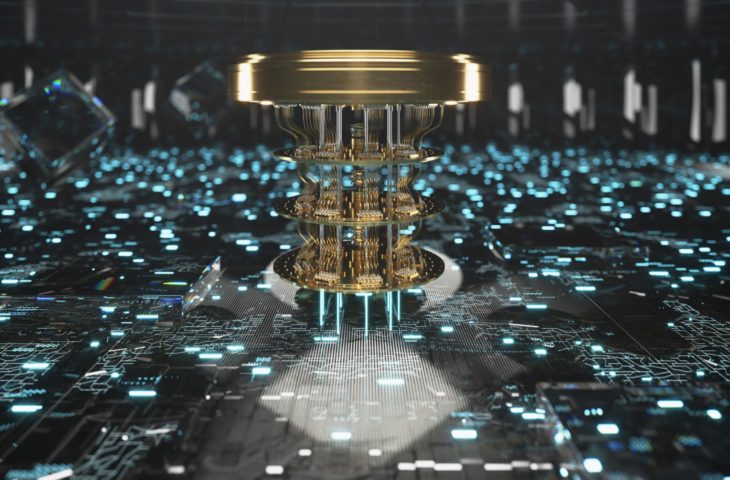Riken and Fujitsu have completed Japan’s first superconducting quantum computer. The modern system is primarily intended to support research into more precise quantum systems.
Fujitsu and the Riken Center for Quantum Computing have delivered their first superconducting quantum computer. Superconductivity is the common technology for the current generation of quantum computers and is also used by Google and IBM, among others. The construction and use of the systems are very complex because the existence of their qubits depends on a very low temperature: the quantum computer only works at temperatures close to absolute zero.
error correction
The construction of such a machine is therefore a technological masterpiece. There are also quantum computers in Europe, but systems like the IBM Q System One were not developed by European companies, but by American companies. In this regard, the announcement of the Fujitsu and Riken system is a milestone for Japan.
The system itself has 64 qubits, which is theoretically enough to outperform classical computers. However, it is still a thing of the future. Quantum computers all have problems with reliability: qubits can be very easily disturbed by external factors, which affects the results. One of the most important challenges in research today is error correction so that systems always deliver the desired results. It’s no different with Fujitsu and Riken.
Hybrid system
The developers are currently linking the quantum computer with an HPC system that digitally simulates qubits. Such a simulated environment contains no real qubits and is therefore immune to interference, but does not have the same speed advantages as a real quantum computer. The hybrid configuration can help in the further development of quantum computers. In addition, the true quantum part of the system acts as an accelerator that can already provide added value for certain workloads.
Riken and Fujitsu are now opening the computer for external use. Fujifilm, Tokyo Electron and Mitsubishi Chemical, among others, want to get started. The goal is to eventually scale the system to 1,000 qubits. Fujitsu also reports that it is assumed that an error-resistant quantum computer that performs better than classical systems in relevant workloads will take at least another ten years.
